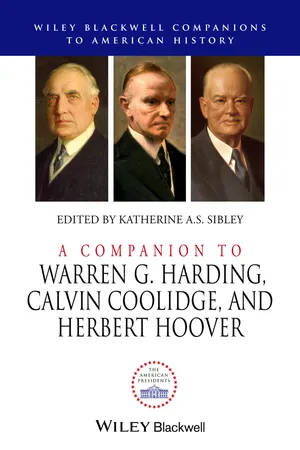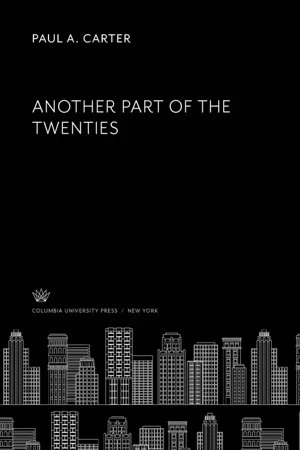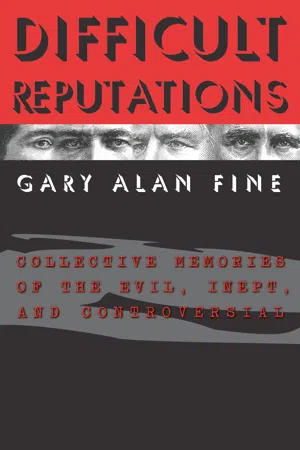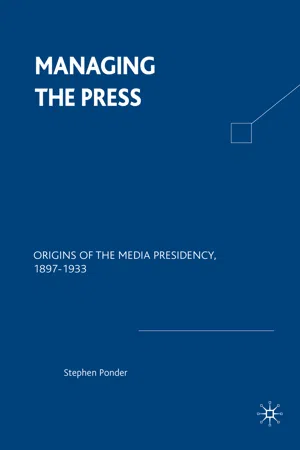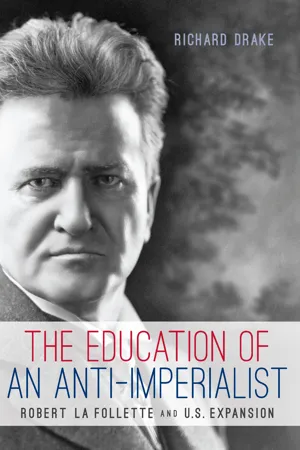History
Warren Harding Presidency
Warren Harding's presidency, from 1921 to 1923, was marked by a return to normalcy after World War I. His administration focused on economic recovery and reducing government intervention in business. However, it was also marred by corruption scandals, including the infamous Teapot Dome scandal, which tarnished Harding's legacy.
Written by Perlego with AI-assistance
Related key terms
1 of 5
7 Key excerpts on "Warren Harding Presidency"
- Katherine A.S. Sibley(Author)
- 2014(Publication Date)
- Wiley-Blackwell(Publisher)
The Politics of Normalcy: Governmental Theory and Practice in the Harding–Coolidge Era . New York: Norton.- Noggle, Burl. 1962. Teapot Dome: Oil and Politics in the 1920s . Baton Rouge: LSU Press. Remains one of the best single volumes on the scandal that engulfed the Harding Administration and led to the first conviction of a cabinet member.
- Noggle, Burl. 1973. “The New Harding.” Reviews in American History 1(1): 126–132.
- Palmer, Niall. 2006. The Twenties in America: Politics and History . Edinburgh: Edinburgh University Press. A concise and informative review of American politics and society in the 1920s. Palmer, a lecturer in American history at Brunel University in Surrey, UK, provides a revisionist account of the presidents of that decade.
- Pietrusza, Robert. 2006. 1920: The Year of the Six Presidents . New York: Carroll & Graf. An entertaining look at the 1920 presidential contest by a leading popular historian.
- Potts, Louis P. 1974. “Who was Warren Harding?” The Historian 36(4): 621–645. DOI: 10.1111/j.1540-6563.1974.tb00439.x
- Robenalt, James David. 2009. The Harding Affair . New York: Palgrave Macmillan.
- Schriftgiesser, Karl. 1948. This Was Normalcy: An Account of Party Politics During Twelve Republican Years: 1920–1932 . Boston: Little, Brown.
- Sobel, Robert. 1998.Coolidge: An American Enigma . Washington DC: Regnery. Perhaps the best biography of Harding’s successor. Sobel, a business history professor, grades Harding’s presidency as a success but also credits Coolidge with helping carry on the economic good times of the 1920s.
Passage contains an image
Chapter Five The Front Porch Campaign and the Election of Harding
Richard G. FrederickEarly Writings and the “Smoke-Filled Room”
The 1920 election, won overwhelmingly by the Republicans Warren G. Harding and Calvin Coolidge over the Democrats James M. Cox and Franklin D. Roosevelt, has been the subject of a fairly large and interesting literature. First-hand accounts by several of the participants and contemporary accounts by journalists early on established one view of the event which has dominated textbook accounts. Many of these early writings were authored by former members of the Progressive Party, which had split from the regular Republicans in 1912 to pursue their vision of reform. To these worthies, Harding was a member of the “Old Guard,” and his nomination represented reaction rather than movement forward into a new era. William Allen White, the nationally noted editor of the Emporia (KS) Gazette, typified this group’s disdain for Harding in his colorful 1928 history of national politics from the 1880s, Masks in a Pageant- eBook - PDF
- Paul A. Carter(Author)
- 2019(Publication Date)
- Columbia University Press(Publisher)
Chapter IX A Republican Form of Government WE SPEAK of an Age of Jackson and an Age of Roose-velt; an Eisenhower era and a Kennedy era. At any time and under any Presidency, the state of mind of the country is largely influenced by the state of mind of the man in the White House, said Will H. Hays in 1921. The country is colored by his person-ality^] what he does, what he thinks, what he feels. Intangible and imponderable though it is, it is one of the Presidency's most important functions. For better and for worse, in the United States the 882 days between March 4, 1921, and August 2, 1923, were the age of Warren Gamaliel Harding. A scant two months after Harding's death in office, the now well-known scandals began to unfold: the little green house on K Street, and influence-peddler Jess Smith humming My God, How the Money Rolls In; an Attorney-General obstructing jus-tice, and a Secretary of the Interior taking a bribe; poker games around the corner, and clandestine sex behind the back stairs; good intentions vitiated by ignorance, and kindness debased by corruption. Not in half a century, since Grant's time, had any-thing comparable happened to the American government; and not for another half-century, until Nixon's time, would anything com-parable happen to it again. But to understand what those days meant for the people living 16S A REPUBLICAN GOVERNMENT through them, we must for the moment forget Teapot Dome and all that it implies. If the misdoings of Cabinet officers and White House confidants unearthed by Senator Thomas Walsh's Teapot Dome committee bear comparison with the similarly unsavory deeds disclosed by Senator Sam Ervin's Watergate committee, there are at least two crucial diferences. In the first place, although politicians were among those in-volved in the Harding scandals, what they engaged in was not in the strict sense political corruption. Except for Attorney-General Harry Daugherty's inept effort to frame Senator Burton K. - eBook - ePub
Difficult Reputations
Collective Memories of the Evil, Inept, and Controversial
- Gary Alan Fine(Author)
- 2014(Publication Date)
- University of Chicago Press(Publisher)
The election of an incompetent should not only redound to the discredit of the leader, but should call into question the motivations and character of those who elected him. Jerome Lawrence and Robert Lee (1960) make this point in the preface to their comedy based on the Harding administration, The Gang’s All Here: “The real trouble is our own reluctance to think about history except on that November Tuesday.” In the case of Warren Harding, many wished to draw conclusions about what the election of a person of Harding’s character, competence, or ideology might say about the nation. As is evident in light of the memory of Watergate (Schudson 1992:15) and the war in Vietnam (Wagner-Pacifici and Schwartz 1991), history is a rhetorical resource (Wagner-Pacifici 1986): in the Harding case a warning about the importance of reform, activism, strong leaders, and a suspicion of industry. Harding reflected the “spirit of the age”—an age that critics saw as characterized by isolationism, self-absorption, indulgence, and striving for wealth and status (Fontaine and Hannaford 1993)—a Zeitgeist Sinclair Lewis captured in his 1922 novel Babbitt. 20 For many, Harding merely followed the will of the people and did not attempt to lead (Goldman 1972:88); his was not a “rhetorical presidency” (Tulis 1987). It was the American people who were to blame. Indeed, according to one historian (Slosson 1930:174), “It was the luck, undeserved luck of the American people, that they fared no worse than Harding.” America was said to be in a “moral slump” (Adams 1939:186). As Frederick Lewis Allen (1931) remarked: Wearied by the excitement of the war and the nervous tension of the Big Red Scare, they hoped for quiet and healing. Sick of Wilson and his talk of America’s duty to humanity, callous to political idealism, they hoped for a chance to pursue their private affairs without governmental interference and to forget about public affairs - eBook - ePub
The Jazz Age President
Defending Warren G. Harding
- Ryan S. Walters(Author)
- 2022(Publication Date)
- Regnery History(Publisher)
THE SCANDALS“I have no trouble with my enemies. I can take care of my enemies all right. But my friends… they’re the ones who keep me walking the floor nights!”—Warren HardingP resident Harding had his fair share of political enemies, as every high official does, but even some of Harding’s harshest critics recognized his better qualities as the economy continued to improve into 1923 and national tempers calmed. For a political enemy like William Allen White, a self-professed Roosevelt Republican, to compliment Harding at all was remarkable, and yet White admitted that “it was evident that the man tremendously desired to do what he regarded as the right thing”—though what Harding and White considered “the right thing” could differ widely. But even doing “the right thing” caused trouble for Warren Harding, as 1923 turned into a nightmare year for the president.President Harding was responsible for everyone he appointed to office. Although he made some very wise choices, some turned out to be not quite so judicious. “Had Harding appointed a dozen Mellons, he would have been remembered as a great president,” wrote Larry Schweikart and Michael Allen, “but he did not, of course, and many of his appointees were of less than stellar character.” Of this there can be little doubt. Herbert Hoover noted that, for all his good choices and good qualities, Harding “had another side which was not good.” Hoover was referring to some Harding appointments that brought shame and disrepute on the president and the country. Hoover was also upset that Harding had weekly poker games with some of these men, which he said “irked me to see… in the White House.” In 1923, about the time some of the scandals became known to him, Harding stopped those poker games and even quit drinking.1In the end, it was a few of his friends who deceived him. “The President had been betrayed,” wrote Agent Edmund Starling. “Harding was ruined by his friends, just as Wilson was ruined by his enemies.”2 Alice Roosevelt Longworth was a bit less charitable, but she wrote in the same vein, saying that the scandals were “the result of electing to the presidency a slack, good-natured man with an unfortunate disposition to surround himself with intimates of questionable character to whom he was unable to say no, friends who saw financial opportunities for personal power ripe for the picking and were unscrupulous in taking advantage of the weakness of character of the President.”3 But Harding was not truly weak. As Starling noted, his problem was that “he trusted everyone,” probably too much, and that brought on the trouble, as a few of his friends obviously did not hold him in the same regard he held them. His unscrupulous associates took advantage of his kindness by helping themselves to as much loot as they could get. But there was no way for Harding to know that those he chose for office, many of whom were close friends, would deceive him, which is precisely what happened.4 - eBook - ePub
Accidental Presidents
Eight Men Who Changed America
- Jared Cohen(Author)
- 2019(Publication Date)
- Simon & Schuster(Publisher)
53 This stress would grow over time and eventually take such an emotional and physical toll that it would kill him before the end of his first term in office. His vice president, Calvin Coolidge, found himself an accidental president left to pick up the pieces with less than a year to run for election as president in his own right.“Return to Normalcy”
The 1920 presidential election offered an opportunity for America to reset. World War I had occurred and the Senate’s veto of Woodrow Wilson’s international adventures with the League of Nations reflected the overall mood. The cost of war in dollars and lives left America with a significant burden at home. President Wilson, who had suffered a debilitating stroke in October 1919, could barely function, leaving the executive branch paralyzed.54 Not since James Garfield lay bedridden for three months had the government been held hostage by a president’s extended illness. But differently from 1881—when the country was at peace and Congress was in extended recess—there were an infinite number of urgent matters that needed Wilson’s attention.To paraphrase several biographers of the times, there was a lot going on: Common economic woes—runaway inflation, business failures, mortgage foreclosures, and reduction in wages55 —were part of the problem. But trends in urbanization and immigration were also having a profound impact on the country’s economy. For the first time in history, more Americans resided in urban areas, most in cities along the East Coast and in the Midwest.56 The economy struggled to keep pace with such rapid trends, which led to a high cost of living and widespread unemployment.57 Such economic hardship manifested itself in discontent within the labor force and record numbers of strikes, more than 3,600 in 1919 alone.58 - eBook - PDF
Managing the Press
Origins of the Media Presidency, 1897-1933
- NA NA(Author)
- 2019(Publication Date)
- Palgrave Macmillan(Publisher)
CHAPTER EIGHT HARDING AND COOLIDGE: EMERGENCE OF THE MEDIA PRESIDENCY T he 1920s often have been viewed as something of an interlude in the twentieth-century expansion of presidential management of public opinion through the news media. Republican candidate Warren G. Hard- ing pledged in 1920 to lead the nation “back to normalcy” and away from the turmoil of World War I and the Wilson years. 1 To correspondent Fletcher Knebel, they were the “placid twenties,” stretching generously from the end of the war to the excitement of the New Deal in the 1930s. 2 The political scientist Elmer C. Cornwell Jr. referred to the Harding and Coolidge administrations as periods of “consolidation” in presidential leadership of public opinion, and to the unhappy single term of Herbert Hoover, who took office in 1929, as a “retrogression.” 3 Among historians, the presidencies of the 1920s were diminished in hindsight by that of Franklin D. Roosevelt, whose well-documented impact on executive lead- ership of public opinion through the mass media overshadowed those who preceded him as well as those who followed him. 4 Yet this dismissiveness seems overstated. Returning to normalcy under Harding and Coolidge did not mean a return to the laissez-faire approach to the press and public opinion preferred by the last prewar president, William Howard Taft. Historians who consider Harding one of the nation’s worst presidents because of the scandals in his administration nevertheless acknowledge his popularity with the press. 5 As for Coolidge, Charles Willis Thompson, a veteran New York Times correspondent, claimed in 1927 that the taciturn Vermonter was no less successful at publicity than Theodore Roosevelt had been. 6 110 Under Harding and Coolidge, the presidential press conference became a routine White House practice, and both presidents were quick to take ad- vantage of the developing technologies of photography, film, and radio. - eBook - PDF
The Education of an Anti-Imperialist
Robert La Follette and U.S. Expansion
- Richard Drake(Author)
- 2013(Publication Date)
- University of Wisconsin Press(Publisher)
In American politics, he spoke as their foremost champion. The Harding Presidency Begins About the Harding administration, which took office in March 1921, La Fol- lette felt presentiments of disaster. Most ominously, his nomination for the presidency had been the work almost exclusively of big business. La Follette took heart from Wilson’s exiting of the national scene: “The period between the armistice and March 4, 1921, will remain a nightmare in the memories of those who lived through it.” 26 A tragic era in American history had ended with a crushing repudiation of Wilson, but La Follette feared that the new occupant of the White House would be the cheerful servant of the country’s master millionaires. Wilson had started out as president with the promise of 342 The 1920 Campaign and the Harding Administration tackling the fundamental issue of American political life: the ever-waxing struggle for control of the government in Washington between the people and the great organizations of capital, “which have established a policy of eco- nomic autocracy at home and are seeking to establish imperialism abroad.” He had betrayed the trust that progressives of both parties had placed in him. Harding, on the other hand, never had found fault with the corporate control of America. The American system worked to perfection, as far as he was con- cerned, with everyone finding his or her place in a natural scheme of things ordained by the inexorable laws of free-market capitalism. The appointment of pro-business zealots Harry M. Daugherty as attorney general, Albert B. Fall as secretary of the Interior, and Andrew Mellon as secretary of the Trea- sury deepened La Follette’s concern about what likely would be in store for the American people under Harding. La Follette and Harding always had maintained a cordial personal relation- ship, even though their political disagreements included virtually every issue of importance.
Index pages curate the most relevant extracts from our library of academic textbooks. They’ve been created using an in-house natural language model (NLM), each adding context and meaning to key research topics.
